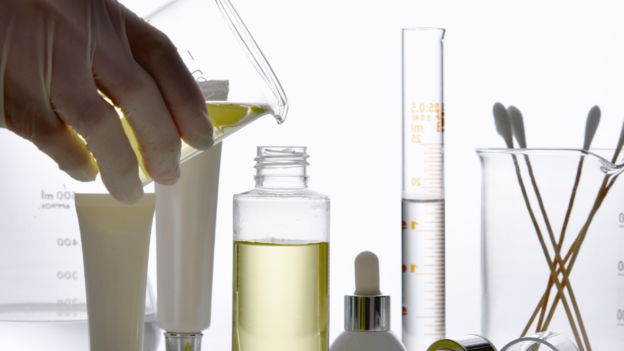The cosmetics world is constantly innovating. I’m not sure how many cosmetic formulas flood the market every year, but I know the number is very large. One of the most common questions I receive is: “Should I patent my cosmetic formula?”. I’m not a lawyer, and not qualified to give legal advice, but I can certainly give you a chemist’s viewpoint of the issue.
If you’ve put a lot of time and effort into perfecting a formula, it’s only natural to want to protect that valuable information. You probably already have Non-Disclosure Agreements in place with your employees and manufacturers. The next step up might seem to be a patent. However, as someone who holds multiple patents, my opinion is that you should not bother to pursue a patent on your cosmetic formula.
Patenting a cosmetic formula costs a lot of money. Between attorney fees, filing fees, administrative expenses, time spent drawing up the patent and then renewal fees, I’ve easily spent close to $50k on some of my patents. This can quickly price-out small business and entrepreneurs who are just starting out in the cosmetic space. It’s a painstaking process to try and find the claims you can cover with your patent, with the constant danger that an overreaching patent will be whittled down to size during the examination process. The more you try to claim something unique and novel (a requirement for many patents), the more legwork is needed to prove that you have something unique and novel. This can mean many long hours of patent searching.
Speaking of long hours, obtaining a final, issued patent for a cosmetic formula can easily take a year or more. Several factors are involved – delays on the part of the examiner, revisions on the part of your attorney, even legal battles are possible on route to an issued patent. In the fiercely competitive, constantly changing landscape of cosmetic advances and trends, is your patented formula still going to be relevant several years / several tens of thousands of dollars later? It’s an important question to ask yourself.
All of this time and money you spend patenting a formula is a classic example of lost opportunity cost. Every resource (time, money) you spend on a patent is a resource you could be putting towards marketing and advertising, building a stronger brand identity, finding new ways to promote the benefits of your products, and interacting with your customers. While you’re tied up in your attorney’s office for the third month straight, your competitors are out there blasting your customers with highly targeted social media advertisements for their (unpatented) products. The patent process can (fatally, in some cases) distract you from expanding (or even just defending) your market position.
However, let’s say you’re determined. You spend the money; you spend the time. You convince the patent examiner that you have something truly new that has never been accomplished in the world of cosmetics. The patent is granted. What protection has that brought you? Unfortunately, in cosmetics, the answer is: not as much as you might think. Part of the patent process involves describing, in detail, how your product is made. Step by step, you must lay out what is protected by your patent.
How difficult do you think it is for a smart competitor to circumvent (“get around”) your patent protections? If they alter the formulation by adding a few new ingredients that don’t fall under your claims, they can sidestep the protected formula. All your work and time spent would then be for naught. Cosmetic patents provide limited protection against imitation. This gives them a diminished ability to fight infringement and keep your position of exclusivity.
Even if someone directly copies your patented product, enforcing a cosmetic patent is financially and mentally draining. It places further strain on your cosmetic business, and on you, further distracting you from growing your business.
Think of all the good your company could accomplish with $50k and several years of work. Think of all the new formulas you could develop, all the outreach events you could arrange, all the new marketing techniques and venues you could explore. Compare all of that potential gain to the value of a piece of paper that can (often) be easily sidestepped and is a pain to enforce even when it is directly breached.
Patents have their place. Sometimes a new technology is sufficiently revolutionary that it benefits from patent protection. A simple cosmetic formula is, in this chemist’s opinion, not worth patenting. That time and money is much better spent strengthening your brand in other ways. If you are considering patenting your skincare compositions, I strongly advise you to seek out qualified legal counsel who can present the pros and cons in a more authoritative voice. I predict that in most cases, you’ll agree that cosmetic patents are often not worth the trouble. Be smart, move fast, and be frugal, and your business will thrive.

